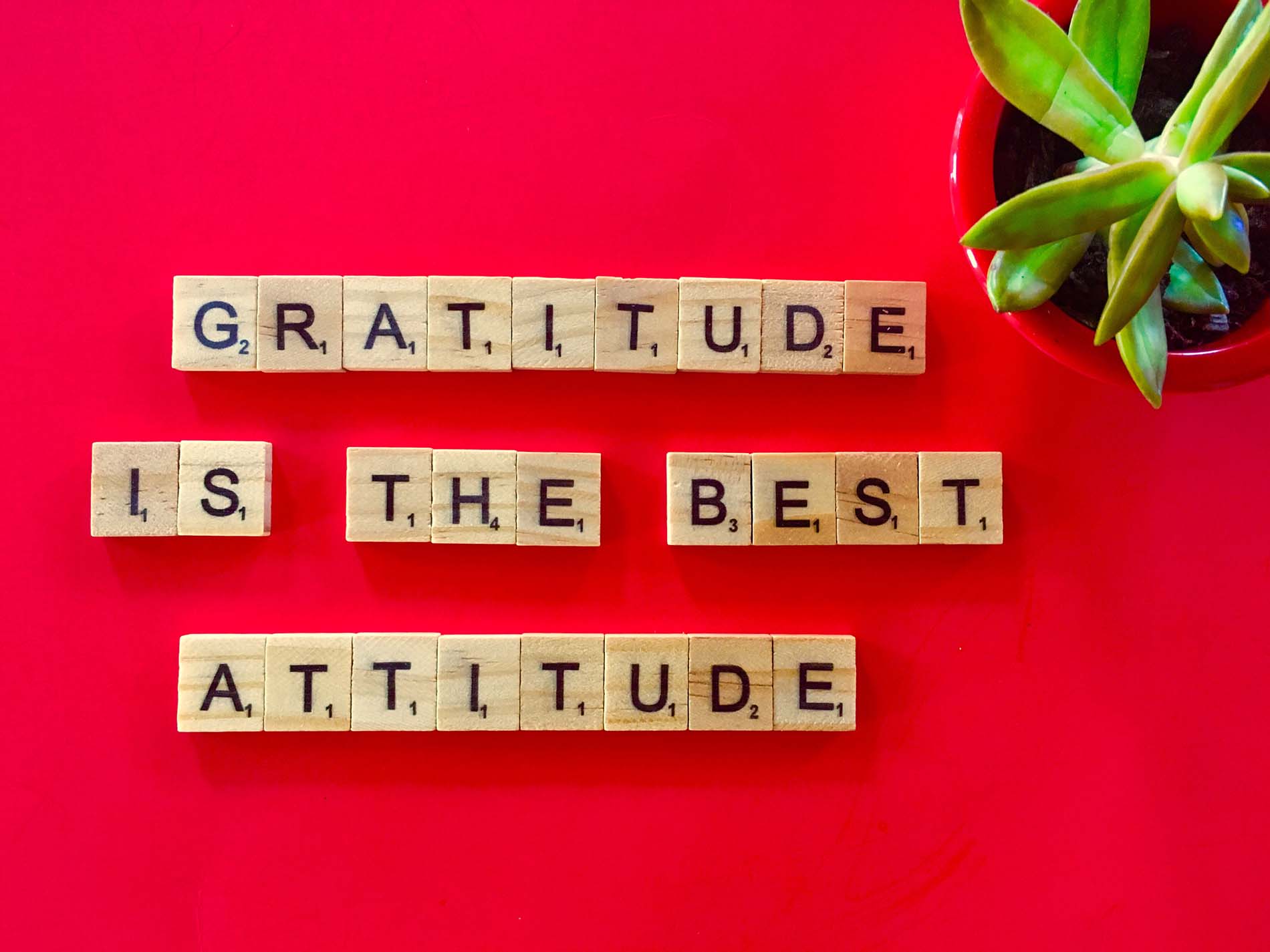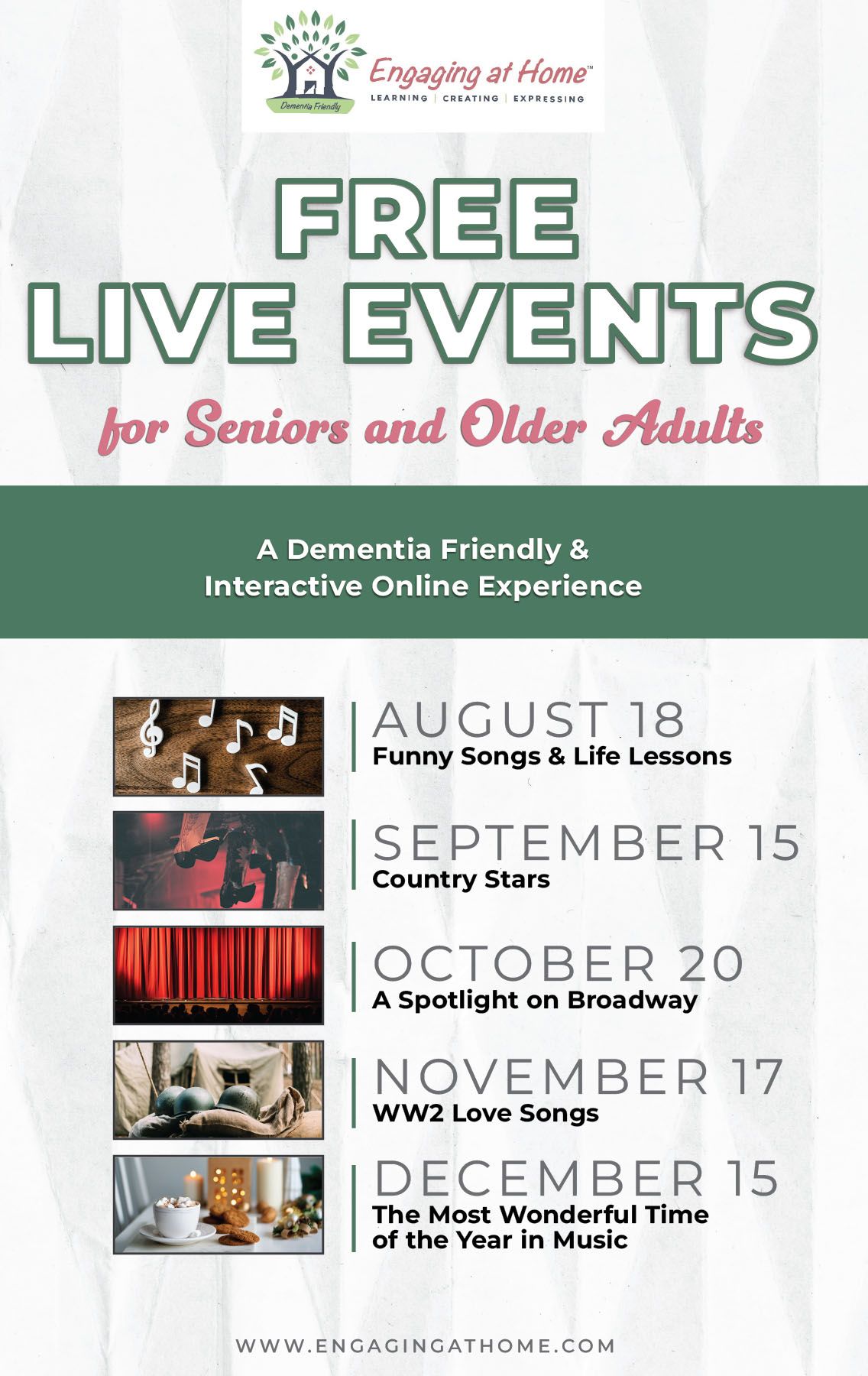30 Days of Gratitude

An article published recently in the NIH National Library of Medicine titled "Doing Things Together Is What It's About" discovered that positive shared experiences benefit the caregiver as much as the person affected by dementia. Music, cognitive stimulation, nature walks, or reflecting on memories and life experiences by looking at family photo albums leads to empathic relationships and feelings of inclusion for both parties. Spending time each day thinking about what you and your loved one are grateful for is something you share that can lead to wonderful experiences.
Practicing gratitude doesn't have to be complex. Choose a time that is best for both of you and decide what you are grateful for daily. Using a blank notebook, create a "Gratitude Journal" together. Write down what you and your loved one decide you are thankful for, and then read through all of the other days with an entry. If you or your loved one likes to draw, add illustrations or photos to the individual pages.
The Greater Good in Action organization tells us there is no right or wrong way to keep a gratitude journal. "The goal of the exercise is to remember a good event, experience, person, or thing in your life—then enjoy the good emotions that come with it." They also recommend that we look at good things as "gifts" and savor surprises. For people with dementia seeing what they accomplished (in the journal) and hearing again the things they are grateful for are positive accomplishments. Thinking about tomorrow provides a sense of the future or, in other words, forward-looking thinking.
In addition, expressing gratitude has been shown to do more than improve your mood. Caregivers and their loved ones who write down a few positive things about their day are healthier, more energetic, less stressed and anxious, and get better sleep. The key is to make this a regular habit and do it with intention.
Maintaining gratitude can help you feel less stressed in your life. So can savoring your experiences. A Gratitude Journal created together expands your awareness of what is good in your life and tips the scales in your favor regarding happiness and resilience.

Connecting the Past with the Present, Opening Doors You Thought Were Closed.
Featured links
Since 1916, the National Park Service has been entrusted with the care of our national parks. During this class, we will explore the history of the Parks, the artists, the photographers, writers, and musicians who have helped us celebrate their beauty and unique qualities.
When we visit a National Park, rocks, fossils, and dinosaur bones are a few of the unique and beautiful things we see. We can learn a lot about our planet by studying Earth's materials and the largest animals ever to live on our planet, dinosaurs.
One million years ago, Earth looked very different than it does today. If we were to time-travel, we probably wouldn't recognize the oceans or continents or many of the animals, plants, or trees. While we may not be too sad that dinosaurs no longer roam the Earth, we know that all plants and animals need to be protected.
Thomas Edison once said, "Never stop learning." Today we know him as one of the most famous and prolific inventors. As an inventor, he held over 1,000 patents, and he influenced daily life with incandescent lightbulbs, the electric grid, the phonograph, and the motion picture camera.
Seated, safe and fun. Mindful moments help us strengthen our body and relax our minds. Remember to breathe and drink water.
Would you be surprised to learn that Americans started recycling discarded materials in 1690? Wow – that was a long time ago! Since then, we have become more aware of taking care of our planet, and creative artists have found ingenious ways to turn recycled material into beautiful works of art!
Who are the Lady Edison's? Just like Thomas Edison, these women were curious about how things worked. They are women who broke gender stereotypes and invented things that made our lives safer, healthier, and in some cases, more enjoyable. Who are today's Lady Edison's?
Seated, safe and fun. A fun heart pumping cardio class for the whole family! Remember to breathe and drink water.
Our brains decide what colors we see; then, our hearts and emotions kick in. Although used in millions of ways other than just the flag, the American colors of red, white, and blue communicate strong feelings. Let's see what famous artists have created to help us celebrate this great country.
What were you doing on July 20, 1969? The spacecraft commander for Apollo 11, Neil Armstrong, became the first man to step on the moon's surface. Nearly 240,000 miles from Earth, Armstrong spoke these words to the world, "That's one small step for man, one giant leap for mankind."
Their world is everything to you.
Is there anything more picturesque than a lighthouse on a rocky coast? National Parks along both coasts and the shores of our lakes tell the stories of America's lighthouses. We are reminded of our Nation's maritime history and the families and individuals who braved the elements to offer safe passage and save lives.
Seated, safe, and fun. Enjoy this seated cardio session with your loved one and remember to breathe and sip water.
Our Founding Fathers risked everything they had, including their lives, to create a new nation based on liberty and freedom for all. From America's original documents to the desk they were written on, our story is told through our amazing people's creativity, innovation, and perseverance.
Fred Harvey & the Harvey Girls
Fred Harvey changed the way Americans traveled. He looked at travel as more than just a way to get from one place to another. Mr. Harvey wanted Americans to travel in style, be comfortable, and have wonderful experiences, including "Five Star" food, hotel accommodations, and service from the "Harvey Girls."
The Military and our National Parks are woven together into a rich tapestry. Today the National Park Service has the honor of preserving hundreds of battlefields, military parks, and historic sites that honor the service of American patriots and ordinary people who did extraordinary things.
Our latest courses
The Wright Brothers' flight at Kitty Hawk, North Carolina, lasted only twelve seconds, but it changed the world. For centuries, humankind attempted to fly using kites, balloons, and gliders, but Orville and Wilbur were the first to accomplish controlled flight. What made these two brothers so convinced that they could fly?
The Wright Brothers' flight at Kitty Hawk, North Carolina, lasted only twelve seconds, but it changed the world. Wilbur and Orville were American inventors and pioneers of aviation, and in 1903 they achieved the first powered, sustained, and controlled airplane flight.
Being curious about new things can serve as a powerful factor in cognition and behavior as we age. While we need more research to understand exactly how or why this happens, we know two things; our memory is often better if we work at learning new things and curious people are happier!
Why and how do lyricists and composers use words to tell a story? Music is emotional – from a simple chorus to an intricate opera; sometimes, it feels like the melody and the lyrics speak directly to our hearts. And that is because music is a language, the language of emotion.
Is the Wild West gone? Western towns offer a glimpse into the past, a real experience of life in these small towns in the late 1800s. They often serve as a museum, where the history has been preserved. It is not the same as in the 1800s, but there are still plenty of towns left that feel just like the Wild West.
How do artists help us "see" and understand what is in space? Painted in 1889 - Vincent Van Gogh's "Starry, Starry Night" may be the most famous painting of the evening sky. Today we have telescopes and cameras that capture beautiful moments and send them back to Earth for everyone to enjoy.
During World War II, this image of a female American factory worker named Rosie became an iconic poster and a song. Rosie's image appeared on posters and covers of magazines and represented women all across America who joined the war effort with the declaration "We Can Do It!"
The 1950s were a decade rich in innovation and change. What stands out as having the most significant influence on our lives during the 1950s? Would you believe a television in every American living room, teenagers, and Rock & Roll?
What drove America to build better roads? America had Henry Ford to thank for this new freedom. As motor-vehicle sales grew, Americans demanded better roads. U.S. Highway 66, popularly known as "Route 66," is significant as the Nation's first all-weather highway linking Chicago to Los Angeles.
Seated, safe and fun. Enjoy an action packed session with your loved one! Remember to breathe and drink water.
Scientists have long believed that bees first appeared 60 million years ago, but a 2006 discovery of a bee embedded in amber shows that the bee may be as old as 120 million years old. That means that bees survived the age of dinosaurs and outlived other insects and animals that have become extinct. What does that tell us about bees?


